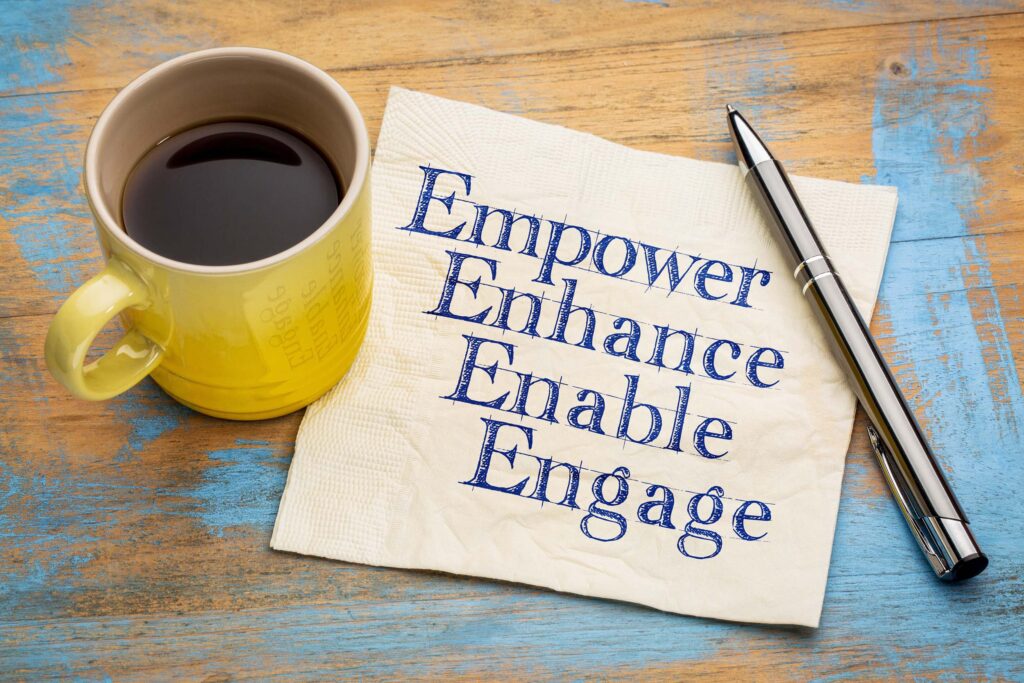In our continuing commitment to bring you “ways of being coach” when you are not a coach, here is tip #2.
Meeting People Where They Are
Our first tip was about meeting people where they are. We suggested that you pay close attention to people and specifically, to what they may not be saying. To meet someone where they are is to meet the whole person, to acknowledge for yourself how they are doing and to act accordingly. Or it might also be to acknowledge to them that you can see how they are doing. It means to approach communication knowing it is far more non-verbal than it is verbal and to not ignore what you are seeing.
- – 55% of communication is body language
- – 38% of communication is voice tone, cadence, speed and pitch
- – Only 7% of communication is the words that you use
Meeting people where they are means when you have a question to ask, you pay attention and you choose the best time. It means when someone tells you they are “fine” and you can see that they are “not fine,” you do not ignore what you are seeing. It is not only a tool of communication; it is also a way of being compassionate toward other humans. This might require slowing down, but it will save you time in the long run.
Approach People With Openness
BEING coach, Tip #2, is to approach people with openness. This will again require you to slow down. Set aside your preconceived notions of how you think people might react to you or to your propositions. Let go of what you believe about them. Allow them to surprise you. For example, someone offers an opinion you don’t like or makes a comment that bugs you, instead of going into normal reaction mode, stop.
As coaches, what we know is that effective communication starts with you knowing yourself. It is facilitated by you knowing your habitual reactions to things. When you know your reaction is about you, then you can stop yourself when you see a habitual reaction popping up. “Ah yes, I tend to over-react when someone says they watch Fox news.” What if you can stop at that point and if this is an important relationship to you, you might instead demonstrate true curiosity about it.
Be Curious
Or let’s try an easier example. What if someone does not “believe in” sending their kids to college and you do? Can you stop yourself when you notice that reaction in you? Can you then shift yourself to truly wondering how they feel and what they believe? Explore. Be curious. Like a child. Like this is your first time talking to them about this. Like you don’t know what is about to happen.
Coaches are intensely curious people. We work on allowing ourselves to be surprised by people, educated by people. We listen to learn.
Sometimes it is easier said than done. But try it!
And we will teach real ways to do this at our January 23 workshop. Check it out – below.
_______________________
If you are interested in learning more about the coaching skill set, join us on January 23, for our first in a series called Game Changer: How Coaching Can Help you to Level Up! This workshop is the first in a monthly series on coaching skills for the non-coach. It will also introduce you to coaching itself – as a career path, as a way to manage more effectively in your organization and as a way to discover what you truly want in your life. Click here to learn more: Game Changer | McLaren Coaching – Capture Your Success







